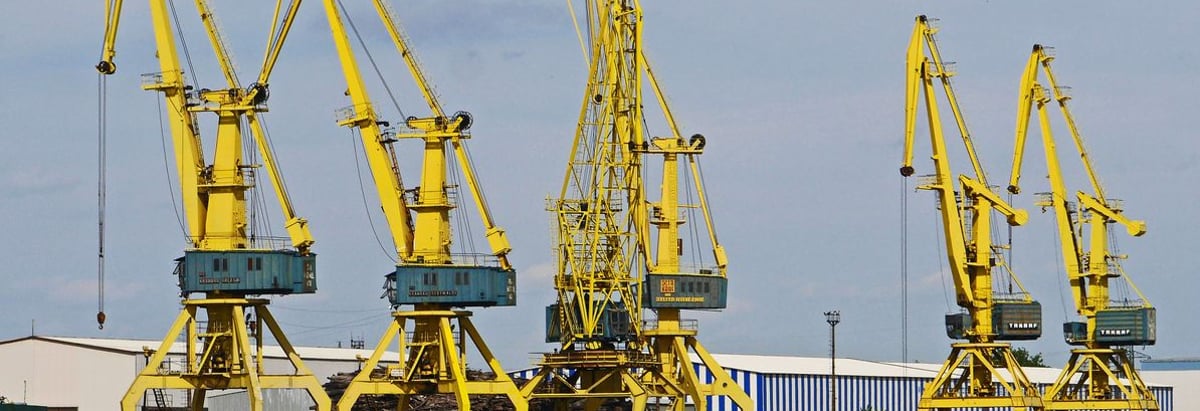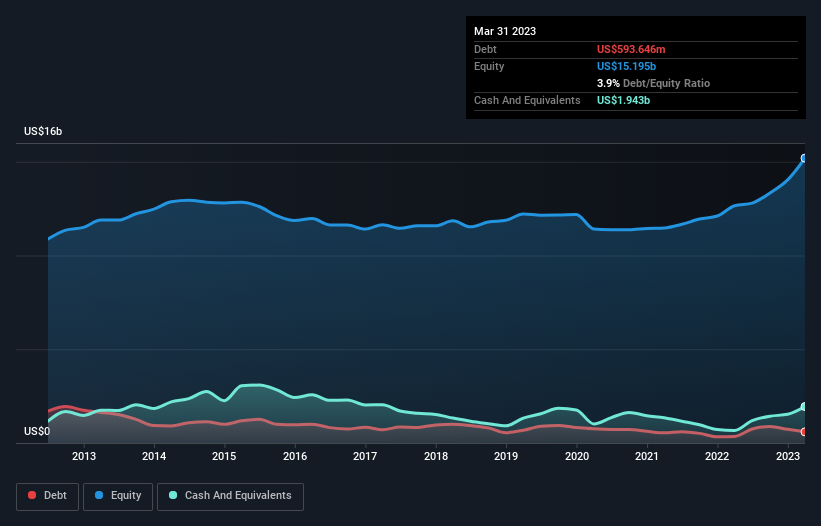
Legendary fund manager Li Lu (who Charlie Munger backed) once said, 'The biggest investment risk is not the volatility of prices, but whether you will suffer a permanent loss of capital.' It's only natural to consider a company's balance sheet when you examine how risky it is, since debt is often involved when a business collapses. As with many other companies Tenaris S.A. (BIT:TEN) makes use of debt. But the more important question is: how much risk is that debt creating?
What Risk Does Debt Bring?
Generally speaking, debt only becomes a real problem when a company can't easily pay it off, either by raising capital or with its own cash flow. Ultimately, if the company can't fulfill its legal obligations to repay debt, shareholders could walk away with nothing. While that is not too common, we often do see indebted companies permanently diluting shareholders because lenders force them to raise capital at a distressed price. Of course, debt can be an important tool in businesses, particularly capital heavy businesses. When we think about a company's use of debt, we first look at cash and debt together.
Check out our latest analysis for Tenaris
How Much Debt Does Tenaris Carry?
The image below, which you can click on for greater detail, shows that at March 2023 Tenaris had debt of US$593.6m, up from US$348.0m in one year. However, its balance sheet shows it holds US$1.94b in cash, so it actually has US$1.35b net cash.

How Healthy Is Tenaris' Balance Sheet?
We can see from the most recent balance sheet that Tenaris had liabilities of US$2.64b falling due within a year, and liabilities of US$805.4m due beyond that. Offsetting these obligations, it had cash of US$1.94b as well as receivables valued at US$3.23b due within 12 months. So it actually has US$1.73b more liquid assets than total liabilities.
This short term liquidity is a sign that Tenaris could probably pay off its debt with ease, as its balance sheet is far from stretched. Succinctly put, Tenaris boasts net cash, so it's fair to say it does not have a heavy debt load!
Even more impressive was the fact that Tenaris grew its EBIT by 228% over twelve months. That boost will make it even easier to pay down debt going forward. When analysing debt levels, the balance sheet is the obvious place to start. But ultimately the future profitability of the business will decide if Tenaris can strengthen its balance sheet over time. So if you're focused on the future you can check out this free report showing analyst profit forecasts.
Finally, while the tax-man may adore accounting profits, lenders only accept cold hard cash. Tenaris may have net cash on the balance sheet, but it is still interesting to look at how well the business converts its earnings before interest and tax (EBIT) to free cash flow, because that will influence both its need for, and its capacity to manage debt. Looking at the most recent three years, Tenaris recorded free cash flow of 46% of its EBIT, which is weaker than we'd expect. That weak cash conversion makes it more difficult to handle indebtedness.
Summing Up
While we empathize with investors who find debt concerning, you should keep in mind that Tenaris has net cash of US$1.35b, as well as more liquid assets than liabilities. And we liked the look of last year's 228% year-on-year EBIT growth. So is Tenaris's debt a risk? It doesn't seem so to us. When analysing debt levels, the balance sheet is the obvious place to start. However, not all investment risk resides within the balance sheet - far from it. We've identified 2 warning signs with Tenaris (at least 1 which is a bit unpleasant) , and understanding them should be part of your investment process.
At the end of the day, it's often better to focus on companies that are free from net debt. You can access our special list of such companies (all with a track record of profit growth). It's free.
Valuation is complex, but we're here to simplify it.
Discover if Tenaris might be undervalued or overvalued with our detailed analysis, featuring fair value estimates, potential risks, dividends, insider trades, and its financial condition.
Access Free AnalysisHave feedback on this article? Concerned about the content? Get in touch with us directly. Alternatively, email editorial-team (at) simplywallst.com.
This article by Simply Wall St is general in nature. We provide commentary based on historical data and analyst forecasts only using an unbiased methodology and our articles are not intended to be financial advice. It does not constitute a recommendation to buy or sell any stock, and does not take account of your objectives, or your financial situation. We aim to bring you long-term focused analysis driven by fundamental data. Note that our analysis may not factor in the latest price-sensitive company announcements or qualitative material. Simply Wall St has no position in any stocks mentioned.
About BIT:TEN
Tenaris
Manufactures and distributes steel pipes for the energy industry and other industrial applications in North America, South America, Europe, the Middle East and Africa, and the Asia Pacific.
Flawless balance sheet, good value and pays a dividend.


